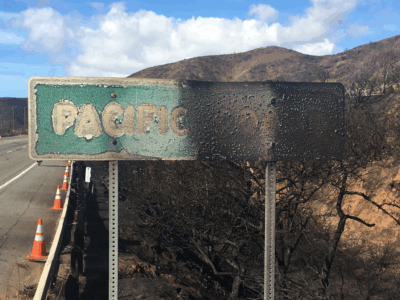A New Era for Protecting Public Lands
The Bureau of Land Management has always prioritized extraction activities. Now the agency has announced a rule that could elevate conservation.
In August, 2021, I blogged on Legal Planet about a piece in Science I had co-authored arguing for an end to prohibiting “nonuse” rights to bid on public land use. The article helped popularize the issue and the Bureau of Land Management today announced a final rule that, as the BLM press release describes, “recognizes conservation as an essential component of public lands management, on equal footing with other multiple uses of these lands.”
By way of quick background, our public resource laws were written with an explicit bias in favor of extractive activities. When the laws were passed almost a century ago, the goal was to put the lands to productive use as quickly as possible. If you found valuable minerals and staked a claim, it was yours. This practice has largely continued to the present day, where there is a “use it or lose it” requirement for bidding on access to public lands. This works in favor of grazing, mining, and oil & gas interests. By contrast, if you want to keep the trees standing, the oil in the ground, or the range free from grazing, you’re not allowed to bid at all.
The focus on extraction activities on public lands may have made sense when the nation actively sought to promote the productive use of its natural resources and settle the West. Such rules, however, are outdated today.
In our article, we argued that conservationists’ exercise of non-use rights should hold the same status as extractive interests in acquiring public resource rights. This approach would allow market mechanisms to reveal unmet demands for additional conservation of publicly managed resources currently subject to political decision-making and create more durable conservation outcomes.
The BLM rule doesn’t exactly allow conservation interests to go head-to-head with extractive interests. But, for the first time, bids are allowed for so-called “restoration leases” and “mitigation leases” on the roughly 245 million acres that make up a tenth of the country’s land. The agency gives examples of restoring mule deer habitat and offsetting the impacts of a solar energy project or transmission line by restoring or protecting wilderness and recreation activities in a different area.
The rule is controversial. Wyoming Governor Mark Gordon, described it as a “very top-down, Washington-centric approach.” He went on to say, “unfortunately Wyoming finds itself imposed upon by these colonial forces of national environmental groups who are pushing an agenda onto Wyoming.” The Western Energy Alliance has already announced it will challenge the rule, apparently arguing that the new lease categories do not count as “uses” under FLPMA’s multiple-use mandate.
It remains to be seen how significant this rule will be. There is good reason to think that conservationists will acquire restoration and mitigation leases for ecologically or scenically valuable lands, but whether these bids really compete against extractive interests remains to be seen. My hunch is that actual competing bids will be infrequent. It also remains to be seen whether these new types of leases will significantly affect the budgets of states such as Wyoming that depend on royalty payments from extractive leases.
We will find out soon enough.
The key point is that BLM has incorporated 21st Century values into our public lands laws.
Reader Comments
One Reply to “A New Era for Protecting Public Lands”
Comments are closed.






There is a discussion of a Washingto/Wyoming tension; but the rest of us have to wonder why minuscule population Wyoming thinks it gets to dictate public land policy for the rest of us. Perhaps we’ve seen too many installments of “Yellowstone,” but who would trust Wyomingto treat the rest of as equals?